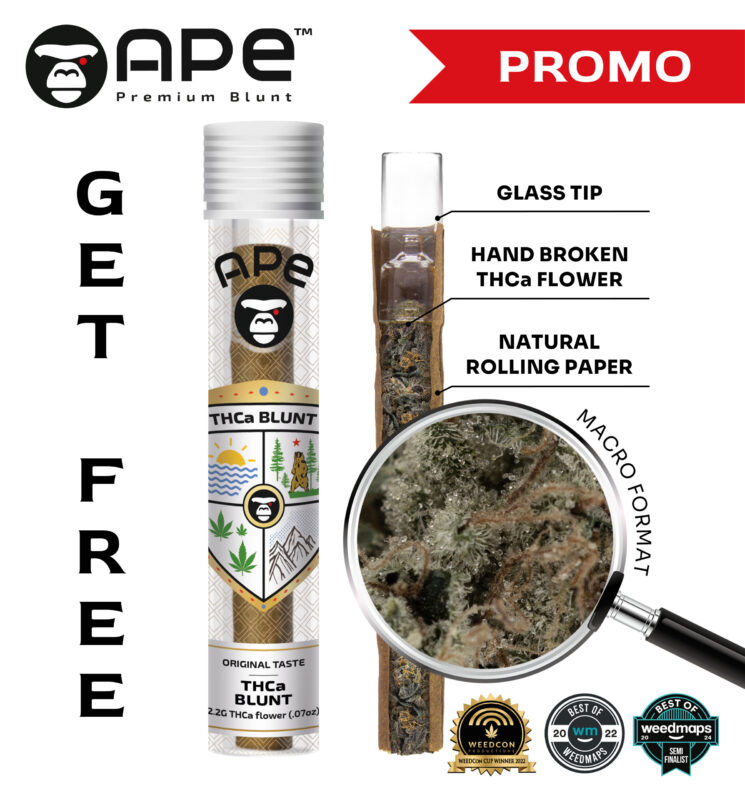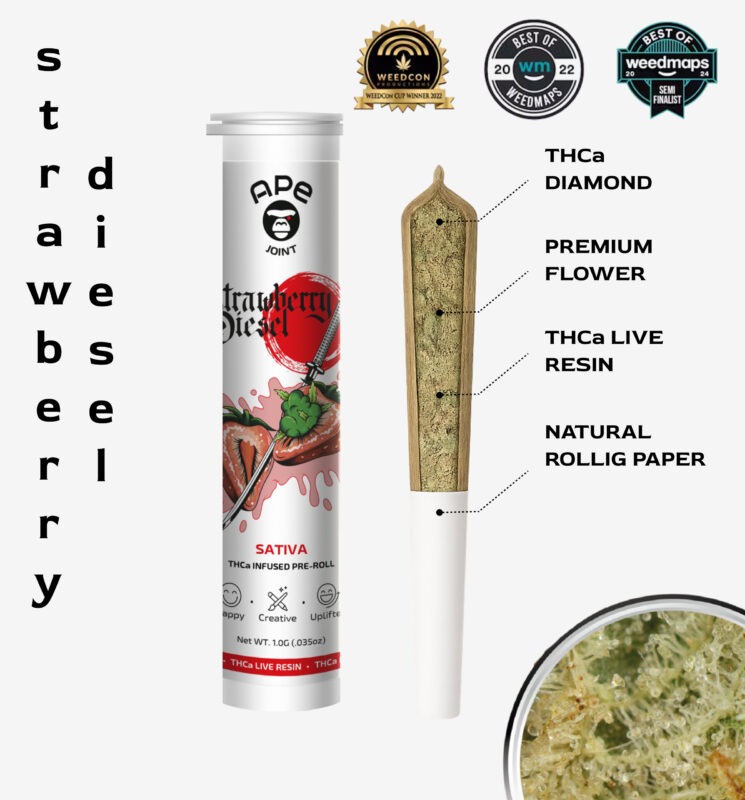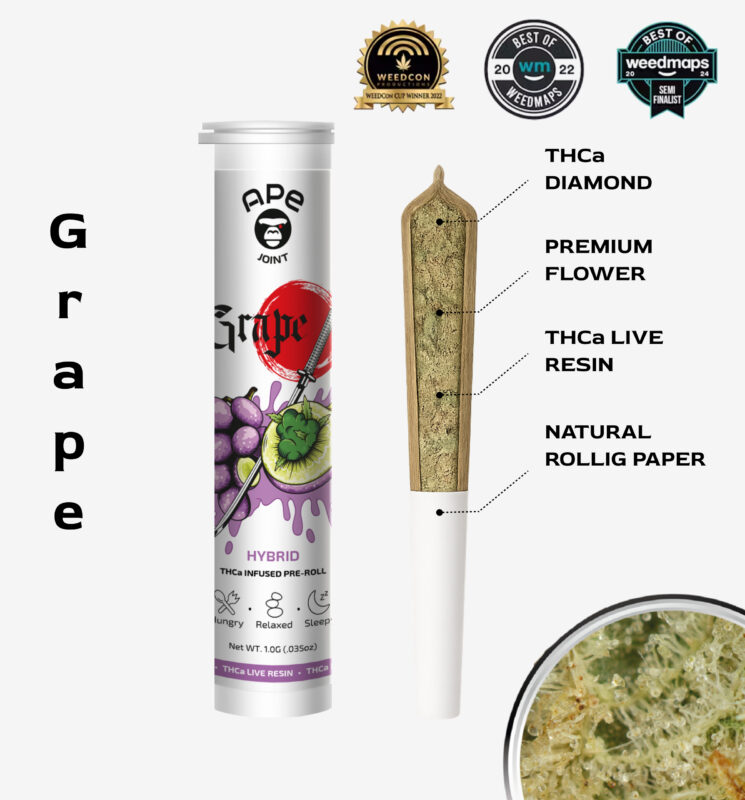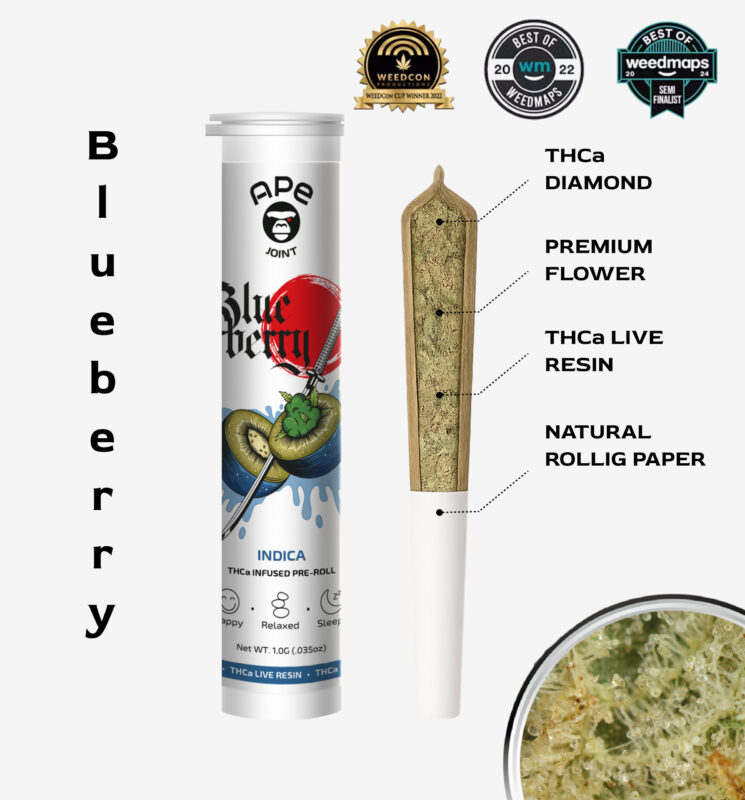Learn more about !
THCa: What It Is, Myths, and Realities
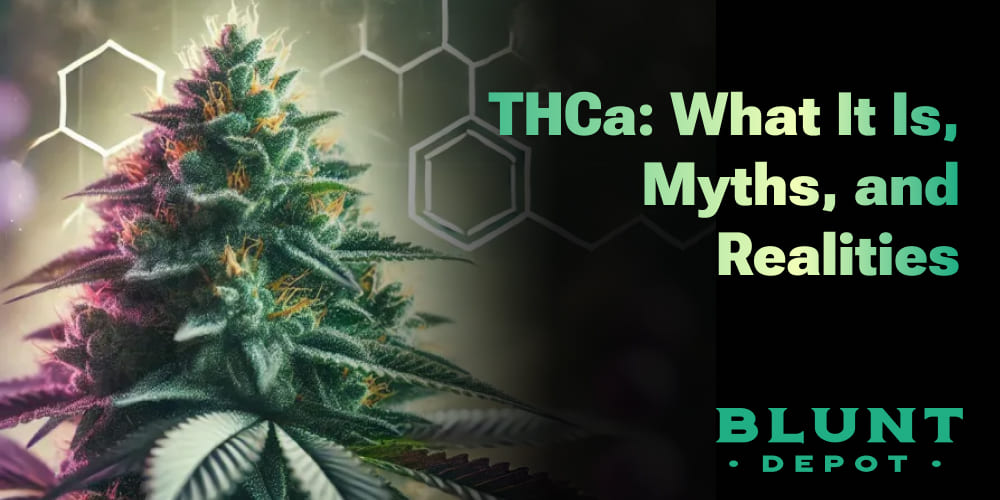
If you’re even a little bit into cannabis, you’ve probably heard about THCa (tetrahydrocannabinolic acid). This compound has been getting a ton of attention lately, both from scientists and people interested in natural medicine. But what exactly is it, and why is it such a hot topic? Is THCa just a “bait-and-switch” to get the effects of THC? Or is it a completely different compound with unique therapeutic benefits? Let’s break it down and separate facts from myths.
THCa is the precursor to the famous THC (tetrahydrocannabinol), the psychoactive compound in cannabis that gets you high. In fresh, raw cannabis, there’s practically no THC, but there’s plenty of THCa.
Here’s the twist: THCa doesn’t produce psychoactive effects. Why? Because the THCa molecule has an extra carboxyl group that prevents it from binding to certain receptors in the brain — the CB1 receptors, which are responsible for that "high" feeling you get from THC. But, when you heat it up (through smoking, baking, or vaping), THCa loses that group and transforms into THC, becoming active.
There are tons of myths floating around about THCa on forums and social media. Let’s clear up a few of them:
1. “THCa is just THC with a different name”
Reality: Nope, they’re not the same. While THCa and THC share a similar structure, they have very different effects on your body. THCa doesn’t get you high, so it’s not just another name for THC. The psychoactive effects only happen once THCa undergoes decarboxylation and turns into THC.
2. “THCa has no health benefits”
Reality: Totally false! Modern research shows that THCa has a ton of useful properties. Here are a few:
- Anti-inflammatory effects: This is super helpful for people with conditions like arthritis, Crohn’s disease, and other chronic inflammatory issues.
- Nerve protection: THCa helps protect nerve cells, which is especially important for conditions like Alzheimer’s or Parkinson’s disease.
- Anti-nausea: This can be beneficial for cancer patients undergoing chemotherapy.
- Antioxidant activity: Protects cells from damage caused by free radicals.
Some studies also show that THCa could help reduce seizures in people with epilepsy and other neurological disorders.
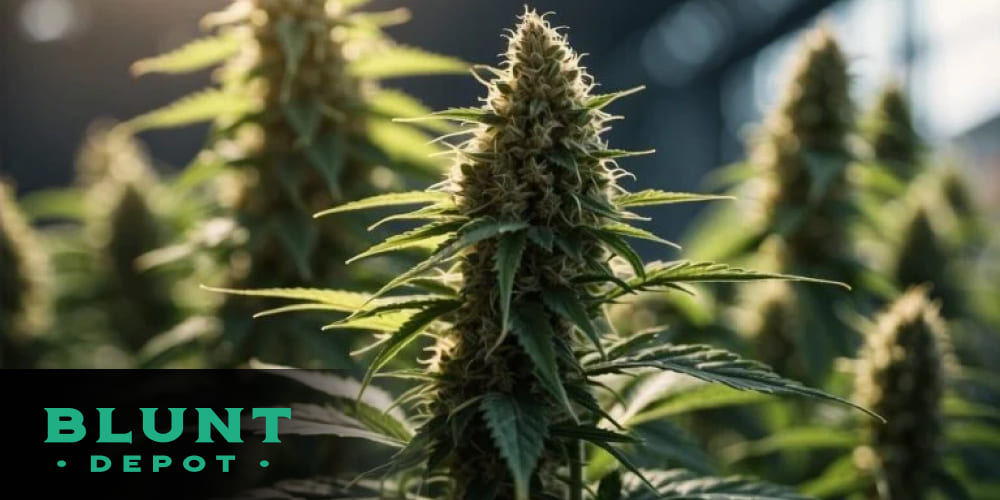
3. “THCa is legal everywhere because it doesn’t get you high”
Reality: This is one of the most dangerous myths. Even though THCa doesn’t have psychoactive effects, its legal status is not as straightforward as it might seem. In some places, THCa can be considered illegal because it easily converts into THC when heated. It’s crucial to check local laws before buying or using THCa.
4. “THCa is useless without smoking or heating it”
Reality: Not true! While THCa does lose its psychoactive properties when heated, it still retains a lot of its therapeutic benefits in its raw form. Many people use THCa in ways like:
- Drinking fresh juices or making smoothies from cannabis leaves and flowers.
- Taking capsules or oils designed for medical use.
- Using topical creams to reduce pain and inflammation.
Mysterious – APE THCA BLUNT 2.2G
This product is available for orders totaling $99 or more.
Strawberry Diesel Infused-Joint 1g-THCa Diamond + THCa Live Resin
- Sweet strawberry with a diesel, earthy undertone
- Potent, smooth, and flavorful
- Provides a strong mental lift with clear-headed effects
- Enhances creativity and focus
- Promotes relaxation while maintaining energy
Grape Infused-Joint 1g-THCa Diamond + THCa Live Resin
- Sweet strawberry with a diesel, earthy kick
- Potent, smooth, and packed with flavor
- Delivers a strong mental boost with clear-headed effects
- Enhances creativity, focus, and mood
- Promotes relaxation without compromising energy
Blueberry Infused-Joint 1g-THCa Diamond + THCa Live Resin
- Sweet blueberry with earthy and floral undertones
- Smooth, potent, and flavorful
- Provides a strong mental boost with clear-headed effects
- Enhances focus, creativity, and mood
- Promotes a calming body relaxation without compromising energy
Research on THCa is still in its early stages, but the results are looking promising. In 2013, one study showed that THCa had anti-inflammatory effects in mice. Other animal studies suggest that THCa has neuroprotective properties, making it a promising candidate for treating neurodegenerative diseases. Doctors are beginning to use THCa to help manage pain in patients with chronic conditions where traditional medications aren’t effective.
Not necessarily. While THCa has strong potential in treating specific medical conditions, it’s also gaining popularity among wellness enthusiasts who use it for general health benefits. Many people consume THCa as part of their holistic wellness routine for its anti-inflammatory, antioxidant, and neuroprotective effects. Whether in smoothies, tinctures, or topical products, THCa is seen as a gentle yet effective way to boost overall health without the psychoactive effects of THC.
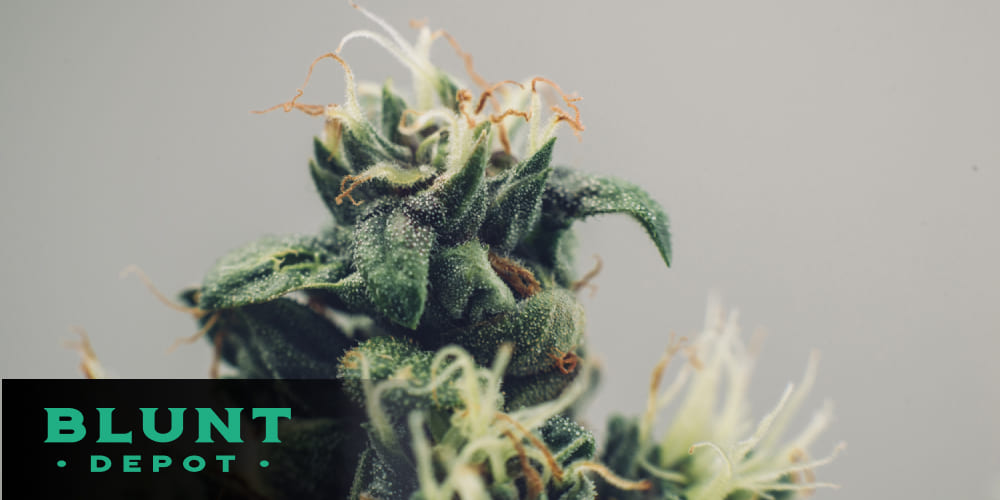
THCa is becoming more popular for several reasons:
- No psychoactive effects — People who want the health benefits of cannabis without getting high are turning to THCa as a safe alternative.
- Potential medical value — Especially for people with inflammation, nerve issues, or chronic pain.
- More products on the market — As demand grows, THCa extracts, juices, oils, and capsules are becoming more accessible.
Not anymore! As the cannabis industry continues to evolve, more THCa products are becoming readily available. Whether you’re looking for raw cannabis flowers (which contain THCa before decarboxylation), THCa concentrates, tinctures, or even infused drinks, there’s a growing variety of options for consumers. Many dispensaries now offer THCa-rich products, and with the rise of cannabis health and wellness, it’s easier than ever to find THCa in the form that best suits your needs.
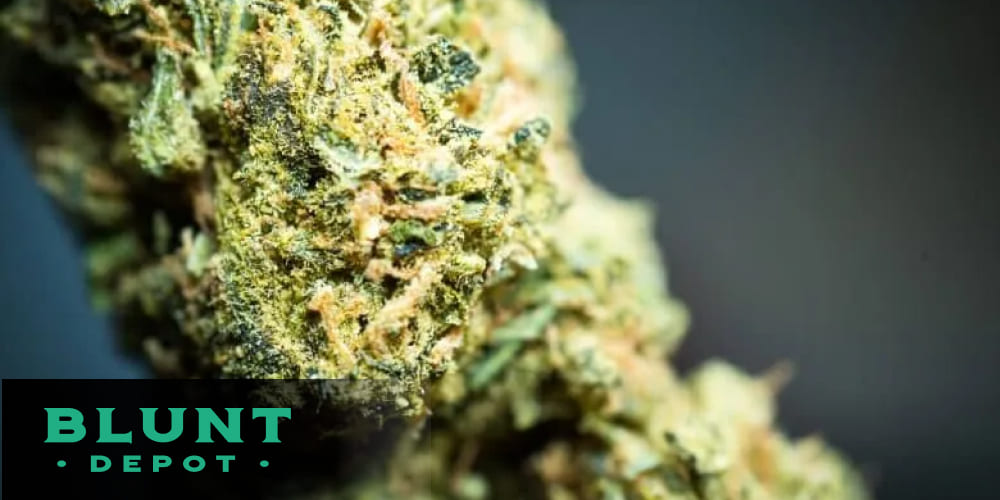
Yes, THCa has shown potential in treating inflammation, pain, and certain conditions like Parkinson's disease. However, it’s essential to consult a healthcare professional before use.
THCa is most beneficial when consumed raw or as a supplement. Fresh cannabis leaves and flowers can be juiced, providing a potent source of THCa.
THCa and THC are distinct cannabinoids. THCa does not have psychoactive effects unless heated, while THC induces a high when consumed.
Raw Form: THCa is found in abundance in fresh cannabis plants, sometimes comprising up to 90% of the total cannabinoids in the raw plant.
Medical Potential: Studies suggest that THCa may play a role in treating conditions related to inflammation and nerve damage, potentially offering relief for patients with diseases like multiple sclerosis.
Cosmetic Uses: THCa is increasingly being included in skincare products due to its antioxidant and anti-inflammatory properties.
Scientific Research: In recent years, THCa has become the focus of numerous scientific studies, exploring its potential therapeutic effects.

